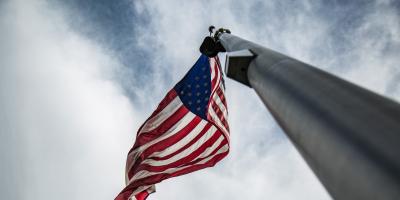Campaign Legal Center (CLC) has been sounding the alarm since before President Trump’s second administration even began that the president’s blatant disregard for ethics laws and norms could pave the way for corruption, the misuse of taxpayer funds, and personal enrichment over the public good.
Now, it appears that members of his administration are following the president’s bad example.
One such instance: U.S. Treasury Secretary Scott Bessent has failed to divest from financial interests that conflict with his official role in the Cabinet. This development comes after Campaign Legal Center (CLC) already called on the Office of Government Ethics (OGE) in July 2025 to enforce ethics guidelines when it appeared that Bessent continued to hold conflicted stocks, despite the ethics promises made to Congress during his Senate confirmation process.
This raises serious concerns over whether a powerful elected official with unparalleled ability to shape the economy may be doing so to benefit his bottom line rather than everyday Americans.
CLC, along with Democracy Defenders Fund, now have called on OGE and the Treasury Department Inspector General to investigate Bessent’s continued ownership of stocks that pose a conflict of interest to his position.
Why do we have conflict of interest laws?
Corruption happens when powerful people abuse their positions for personal gain. Corruption can take many forms, like a politician accepting bribes or an official using their government position to make their businesses more money.
Learn more about corruption and conflicts of interest here.
When a politician or government official has personal financial stakes — like stocks or business interests — that could prevent them from making an unbiased decision, this is a conflict of interest.
Ethics laws are designed to ensure conflicts of interest do not impact the work of public officials. Bessent, as the Treasury secretary, has a huge amount of influence on the monetary policies of the United States and, consequently, the economic realities for everyday Americans.
Per his ethics agreement, Bessent was required to divest from financial holdings that posed possible conflicts of interest within 90 days of his confirmation. These 28 holdings consist of several companies directly lobbying the Treasury Department, such as Verizon Communications and global trading corporation Archer Daniels-Midland. CLC filed a complaint with the OGE on July 9, 2025, following no public indication that Bessent had divested.
To date, Bessent has still not completely divested from the assets he previously said he would. Amendments to his ethics agreement indicate that Bessent aims to keep several of the assets he once promised to sell.
As a Cabinet-level secretary, Bessent has a responsibility to lead with example on fostering a culture of ethical behavior and serving the American people above all in his department. His blatant refusal to comply with a long-standing ethics requirement is a concerning reflection of how Trump’s administration is approaching the rule of law.
Campaign Legal Center is holding government officials accountable.
With ethics enforcement mechanisms being dismantled by the Trump administration across the government, Campaign Legal Center’s work is more important than ever in making sure that officials work for the public, not themselves.
We called for similar accountability when U.S. DOGE Service (DOGE) employee Gavin Kliger, assigned to the Consumer Financial Protection Bureau (CFPB), appeared to have violated significant conflict of interest regulations meant to prevent public officials from enriching themselves through their jobs.
Our complaint with the Designated Ethics Agency Official (DEAO) at the CFPB urged an investigation into the $715,000 in stock holdings held by Kliger, so that he could be held accountable if he did indeed break the law.
When megadonor and tech mogul Elon Musk used his massive influence in the Trump administration to potentially further the business interests of his satellite company Starlink, CLC similarly acted quickly to hold him accountable.
We filed a complaint against Musk for this alleged self-dealing, and we’ve called out other members of the administration for pedaling Musk’s business interests, including Commerce Secretary Howard Lutnick, who appeared to use his official capacity to promote Tesla stock.
Alongside taking legal action and keeping a watchful eye on our public officials, CLC’s consistent advocacy for stronger ethics enforcement is an important part of keeping our government accountable. Congress recently reaffirmed the importance of ethics enforcement by preserving the Office of Congressional Conduct, following pressure from CLC and our partners.
Campaign Legal Center’s work highlighting threats to our ethics laws and pushing for reform continues. Join us today to support the fight for a government that works for the people, not politicians.



